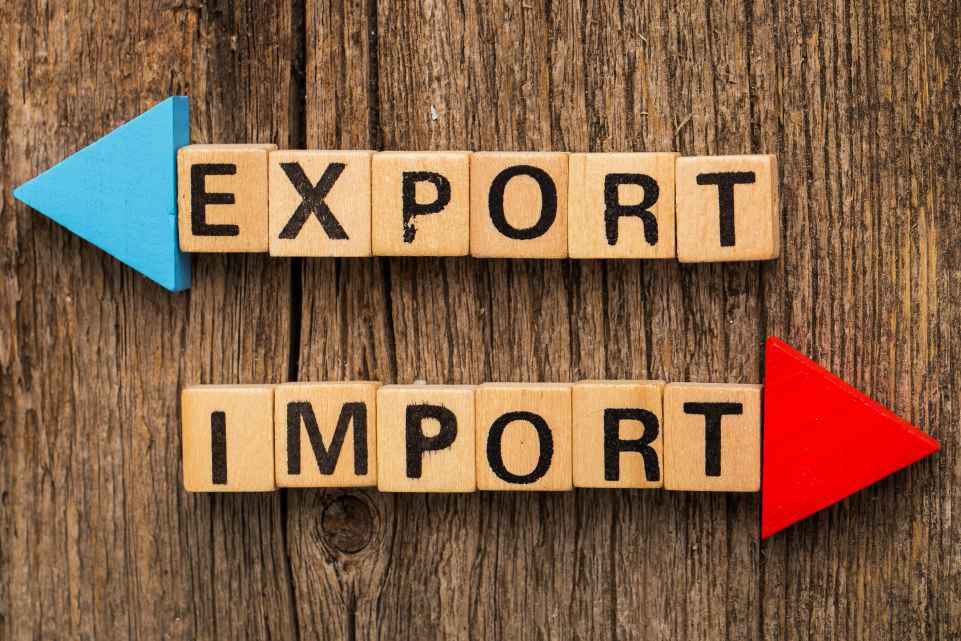Trade Finance Products: Options for International Trade

Businesses engaged in international trade must navigate complex financial landscapes, mitigate risks, and manage cash flow effectively. Trade finance products play a crucial role in facilitating seamless transactions, ensuring that importers and exporters have the financial security they need to expand globally.
Without proper trade finance solutions, companies may face financial uncertainty and issues, which can hinder their ability to grow and compete on a global scale. That's where trade finance products come into play. Whether you are an importer, exporter, or an international trader, understanding these financial instruments is essential for ensuring smooth, efficient, and secure trade operations.
Breaking Down Trade Finance
Trade finance is the backbone of international trade, ensuring that businesses can carry out cross-border transactions with reduced risk, improved cash flow, and secure payment terms. It encompasses various financial instruments, institutions, and mechanisms that facilitate the smooth exchange of goods and services between buyers and sellers across different countries.
At its core, trade finance addresses the challenges of payment risk, country risk, cash flow gaps, and financing constraints by providing structured financial solutions. These solutions help importers secure goods without upfront payment and allow exporters to receive timely payments while mitigating non-payment risk.

Key Trade Finance Products
Letter of Credit (LC)
A Letter of Credit (LC) is one of the most widely used trade finance products that provides assurance of receiving payment in an international trade deal. Issued by the importer's bank (also known as the issuing bank), an LC guarantees that the exporter will be paid once they meet the conditions outlined in the sales contract. Here are the types of letter of credit:
- Revocable and Irrevocable LCs – An irrevocable letter of credit cannot be modified or canceled without the agreement of all parties involved.
- Confirmed LC – A confirming bank (usually in the exporter’s country) adds a second layer of guarantee.
- Sight and Usance LC – A sight LC allows for immediate payment, while a usance LC enables payment on a future date.
An LC reduces non-payment risk and improves cash flow for exporters, making international transactions safer and more efficient.
Bank Guarantee
A bank guarantee is a commitment from a financial institution ensuring that a buyer or seller will meet their contractual obligations. If the buyer fails to make a payment, the bank steps in to fulfill the obligation. Some common types of bank guarantees are as follows:
- Payment Guarantee – Ensures the seller will receive the payment.
- Performance Guarantee – Assures the buyer that the seller will complete the contract as agreed.
- Advance Payment Guarantee – Secures an advance payment given to a supplier.
- Bid Bond – Ensures the bidder will honor the contract if selected.
For exporters and international traders, bank guarantees provide credibility and reduce credit risk, making it easier to secure contracts with more attractive payment terms.
Documentary Collections
Documentary Collections (D/C) are a trade finance method where banks facilitate the exchange of financial instruments and trade documents without providing a direct payment guarantee. The exporter’s bank (the remitting bank) forwards shipping documents to the buyer’s bank (the collecting bank), which releases them to the buyer against payment. Here are a few types of documentary collections:
- Documents Against Payment (D/P) – The buyer must pay before receiving the documents.
- Documents Against Acceptance (D/A) – The buyer can pay at a specified future date (creates extended credit).
This method is cost-effective compared to letters of credit, though it carries more payment risk, particularly in markets with high country risk.
Trade Credit Insurance
Trade Credit Insurance protects exporters against non-payment by buyers. If the buyer fails to pay due to insolvency, bankruptcy, or extended payment terms, the insurer covers the outstanding amount, ensuring steady cash flow. Following are a few reasons why a trade credit insurance certificate can be beneficial to your business:
- Protects against credit risk and payment risk.
- Supports invoice discounting and export factoring, improving the cash conversion cycle.
- Enhances access to credit lines from financial institutions.
- Provides confidence in expanding into new markets with international traders.
Exporters using trade credit insurance can offer extended payment terms while reducing the risk of cash flow problems, making them more competitive in global trade.

Export and Import Financing
Export and import financing plays a crucial role in facilitating international trade, ensuring that businesses have access to sufficient funds to complete trade transactions while mitigating payment risk and cash flow problems.
Export Financing
Exporters often encounter challenges such as cash flow gaps, delayed payments, and country risks when trading internationally. Export financing solutions help businesses manage these risks while ensuring they receive timely payments for their goods and services:
- Export Credit Insurance: Protects against non-payment by buyers due to insolvency or political risks, allowing exporters to trade with confidence.
- Export Factoring: Where exporters sell their accounts receivable to a financial institution at a discount, ensuring immediate payment.
- Invoice Discounting: Allows exporters to borrow against unpaid invoices, improving their cash conversion cycle.
These financing solutions enable exporters to mitigate financial risks and maintain steady cash flow while engaging in international trade.
Import Financing
For importers, accessing capital to purchase goods and ensuring flexible payment terms are essential for maintaining a stable supply chain. Import financing solutions help businesses manage cash flow, obtain extended credit, and reduce transaction costs.
- Trade Credit: Where suppliers offer extended payment terms, allowing importers to pay at a specified future date rather than upfront.
- Open Account Trade: A flexible arrangement in which goods are shipped before payment is due, minimizing the need for advance payment.
- Confirming Bank Services: Provides assurance to exporters by guaranteeing the buyer’s payment. To manage upfront costs effectively, importers can utilize working capital loans, which offer short-term financing to help maintain cash flow.
By leveraging these import financing solutions, businesses can negotiate favorable payment terms, reduce cash flow constraints, and strengthen their supply chain while engaging in global trade.
Supply Chain Finance & Factoring
Supply Chain Finance (SCF) and factoring are essential trade finance products that help businesses improve cash flow, reduce payment risk, and optimize working capital in international trade.
What is Supply Chain Finance?
Supply Chain Finance is a set of financial instruments designed to improve the financial stability of businesses engaged in global trade. It helps suppliers get immediate payment for goods or services while allowing buyers to maintain more attractive payment terms and optimize their cash conversion cycle. Here's how it SCF works:
- A supplier delivers goods or services to a buyer.
- The buyer approves the invoice but requests extended payment terms.
- A trade finance provider or financial institution facilitates early payment to the supplier.
- The buyer repays the financial institution at a specified future date.
Quick Benefits of Supply Chain Finance:
- Enhances cash flow for both buyers and suppliers.
- Reduces credit risk and strengthens the supply chain.
- Offers lower transaction costs compared to conventional financing.
- Provides faster payments to suppliers without impacting the buyer’s balance sheet.
What is Factoring?
Factoring is a financing solution where businesses sell their accounts receivable (unpaid invoices) to a financial institution (known as a factor) at a discount in exchange for immediate payment. Following are the types of factoring:
- Recourse Factoring: The business retains responsibility if the buyer fails to pay the invoice.
- Non-Recourse Factoring: The factor assumes the credit risk and absorbs any potential non-payment.
- Export Factoring: A specialized service that helps exporters mitigate payment risk in international transactions.
Quick Benefits of Factoring:
- Quick access to working capital without relying on traditional loans.
- Minimizes payment delays and improves the cash conversion cycle.
- Protects against buyer default when using non-recourse factoring.
- Reduces dependency on credit lines and conventional financing.

Financial Institutions and the International Trade Administration
Financial institutions play a vital role in facilitating international trade, providing businesses with trade finance products, risk management solutions, and liquidity to support global trade. These institutions, including banks, trade finance providers, and export credit agencies, help exporters and importers manage cash flow, reduce credit risk, and secure payment obligations through various financial instruments.
Additionally, the International Trade Administration (ITA) works to promote fair trade practices, support exporters, and provide essential resources to enhance the competitiveness of businesses in international transactions. Together, these entities ensure the smooth operation of supply chains, mitigate country risk, and foster economic growth.
Role of Financial Institutions in Trade Finance
Financial institutions provide businesses with access to trade finance products that help bridge cash flow gaps, secure working capital, and facilitate secure international payments. The key services they offer include:
- Working Capital Loans – Provide immediate liquidity to help businesses fulfill large orders and maintain smooth operations.
- Invoice Discounting – Allows businesses to access funds by selling outstanding invoices at a discount, improving cash flow without waiting for buyers to pay.
- Trade Credit Financing – Offers short-term credit solutions that enable buyers to make purchases without upfront payments, strengthening supply chain relationships.
- Structured Trade Finance – Tailored financial solutions for large and complex international transactions, often involving export credit agencies and multiple financial institutions.
The Role of the International Trade Administration
The International Trade Administration is a U.S. government agency dedicated to promoting global trade and supporting businesses involved in international transactions. It helps exporters navigate foreign markets, comply with regulations, and mitigate risks associated with country risk and trade finance.
Key Functions of the ITA:
- Export Assistance – Provides resources to help businesses expand into international trade markets, offering support on export finance and market entry strategies.
- Trade Compliance and Enforcement – Ensures businesses comply with international trade laws and regulations, helping to protect against unfair competition.
- Risk Mitigation Services – Works alongside export credit agencies and financial institutions to offer guidance on credit insurance, documentary credit, and other risk management tools.
- Market Intelligence – Offers insights on emerging trade finance providers, international payment rails, and economic trends that impact businesses.
How Businesses Can Benefit from Financial Institutions and ITA
By leveraging the expertise and services of financial institutions and the ITA, businesses can:
- Access trade finance products to support their cash flow and reduce payment risk.
- Secure export finance solutions to offer more attractive payment terms to international buyers.
- Utilize credit insurance to protect against non-payment from international clients.
- Navigate complex regulations with the guidance of the ITA and industry experts.
- Strengthen supply chain finance strategies to enhance global operations.
By leveraging resources of reputed financial institutions like Suisse Bank, businesses can confidently expand their international presence, engage in international transactions, and strengthen their position in the global market.
Necessity of Risk Mitigation in Trade Finance
Engaging in international trade comes with inherent risks, including payment risk, credit risk, country risk, and currency fluctuations. Without effective risk mitigation strategies, businesses may face non-payment issues, supply chain disruptions, or financial losses. To ensure smooth trade transactions and maintain financial stability, risk mitigation is essential for both importers and exporters.
Key Reasons Why Risk Mitigation is Crucial
- Reduces Payment Uncertainty – Businesses need assurance that they will receive payment for their goods or services, particularly when dealing with unfamiliar buyers' banks or markets.
- Protects Against Credit Risk – Exporters and trade finance providers must assess a buyer’s ability to pay, ensuring they have sufficient funds or extended credit options.
- Minimizes Country and Political Risk – Country risk such as economic instability, government regulations, or geopolitical tensions can impact trade. Risk mitigation helps protect against sudden disruptions.
- Enhances Cash Flow Stability – Unforeseen payment delays can create cash flow problems for businesses. Using risk mitigation tools ensures liquidity and helps manage cash flow gaps.
- Safeguards Against Fraud and Default – Trade finance instruments help prevent fraudulent transactions and provide legal protection in case of disputes.
Some Risk Mitigation Tools in Trade Finance
Various trade finance products and financial instruments help mitigate risks and provide security in global trade. Apart from LC, bank guarantees or documentary collections, these include:
- Export Factoring and Invoice Discounting: These tools provide businesses with immediate cash by selling outstanding invoices to a trade finance provider or financial institution, improving cash flow and reducing working capital pressure.
- Standby Letter of Credit (SBLC): A standby letter of credit acts as a secondary payment guarantee, ensuring that the exporter gets paid if the buyer fails to fulfill the sales contract. It provides an extra layer of security for international transactions.
- Hedging and Foreign Exchange (Forex) Risk Management: For businesses dealing with multiple fiat currencies, currency fluctuations can create financial losses. Hedging tools such as forward contracts and currency swaps help stabilize international payments.
- Bank Payment Obligations (BPOs): A BPO is an automated payment method that ensures transactions are completed once the agreed trade conditions are met, reducing manual intervention and delays.
By leveraging these risk mitigation tools, businesses can safeguard their interests, ensure smooth trade transactions, and maintain financial stability in the global trade market

Frequently Asked Questions About Trade Finance Products
What are examples of trade finance products?
Trade finance encompasses various financial instruments and products designed to facilitate international trade by mitigating risks and improving liquidity. Common examples include:
- Trade Credit Insurance: Insurance that protects exporters against the risk of non-payment by buyers due to commercial or political reasons.
- Factoring: The sale of accounts receivable to a third party at a discount, providing immediate cash flow to the seller.
- Forfaiting: The purchase of receivables from exporters, enabling them to receive immediate cash and transfer the risk of payment to the forfaiter.
What is considered trade finance?
Trade finance refers to the financial products and instruments that facilitate international trade and commerce. It involves various mechanisms that manage the payment and risk associated with trading goods and services across borders. The primary objective of trade finance is to ensure that exporters receive timely payments and importers receive their goods as agreed.
What is an example of a trade finance operation?
An example of a trade finance operation is the use of a Letter of Credit (LC). In this scenario:
- An importer requests their bank to issue an LC in favor of the exporter.
- The exporter's bank advises the LC, confirming that payment will be made upon presentation of specified documents proving shipment and compliance with the LC terms.
- The exporter ships the goods and presents the required documents to their bank.
- The exporter's bank forwards the documents to the importer's bank.
- Upon verification, the importer's bank releases the payment to the exporter's bank, ensuring both parties fulfill their contractual obligations.
How does trade finance reduce risk in international trade?
Trade finance reduces risk in international trade by providing mechanisms that ensure payment security and performance assurance. Instruments like Letters of Credit and Bank Guarantees protect exporters from non-payment risk and importers from non-performance risk. Additionally, trade credit insurance safeguards businesses against potential losses from buyer insolvency or political instability in the buyer's country.
Securing Success in International Trade with the Right Trade Finance Solutions
Navigating the complexities of international trade requires businesses to adopt the right trade finance products to ensure secure transactions, optimized cash flow, and effective risk management. From letters of credit and bank guarantees to supply chain finance and trade credit insurance, these financial instruments provide the necessary support to facilitate smooth cross-border transactions.
At Suisse Bank, we specialize in providing tailored trade finance solutions that empower businesses to trade seamlessly across borders. Whether you need a letter of credit, bank guarantee, or other reliable financing options, we ensure smooth and secure transactions. Our commitment to excellence and deep understanding of global trade challenges make us the ideal partner for businesses looking to strengthen their international reach.
Get started now at Suisse Bank and take your global trade operations to the next level!

